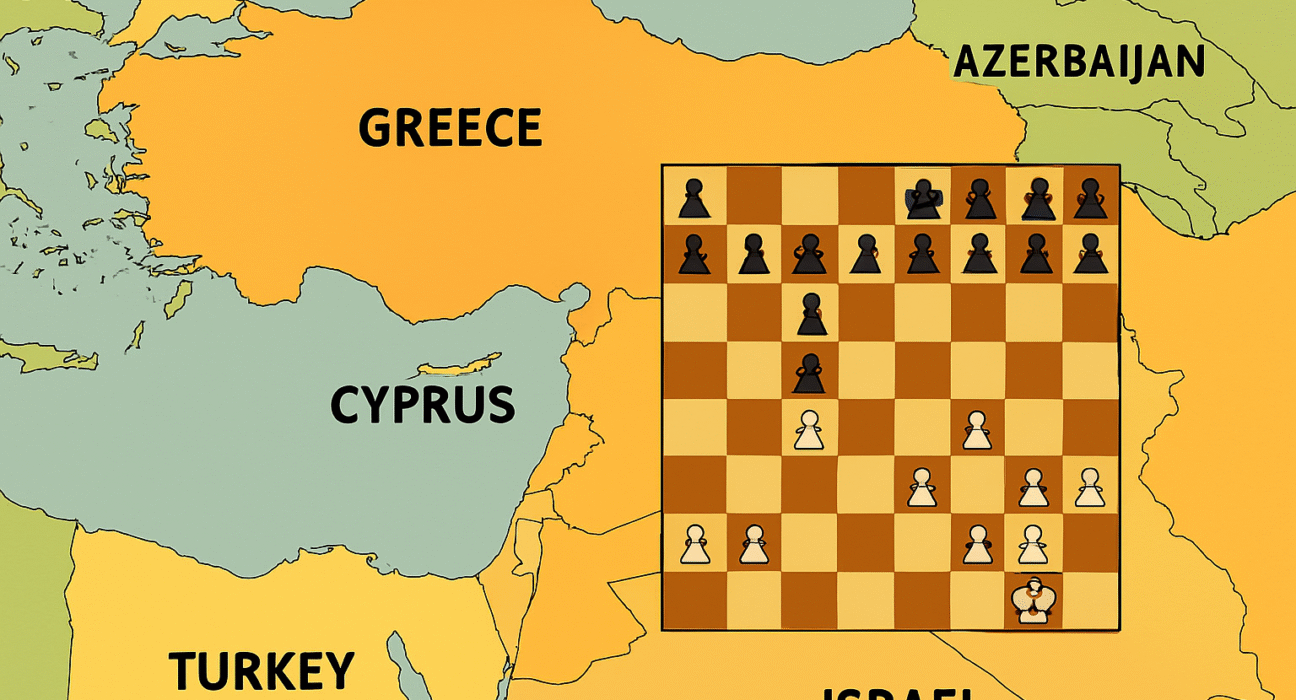by Turan Rzayev
Recent statements by Abdullah Attari, the Palestinian ambassador to the Greek Cypriot Administration of Southern Cyprus, have created uncertainty in Palestine-Turkey relations. Attari’s remarks in an interview with the Greek Cypriot newspaper Politis have caused surprise and widespread debate in Turkey. He sharply criticized Ankara’s approach to the Palestinian issue.
Generally, Turkey has long been one of the most active countries defending Palestine on the international stage. Especially during Recep Tayyip Erdoğan’s presidency, Ankara has firmly supported Palestinian rights both at the UN forums and during military operations in Gaza. Through harsh rhetoric against Israel and humanitarian and diplomatic support for Gaza, Turkey has presented itself as the primary international defender of the Palestinian people and has been able to establish this position.
However, Attari’s words indicate that the Palestinian leadership does not want to view these relations as one-sided or subordinate. His statement “We are not orphans” expresses the Palestinian state’s intention to independently determine its political stance and international strategy. This can be interpreted as a subtle but clear message against Turkey’s regional influence.
Attari’s statements pose a dilemma for Turkish diplomacy. On one hand, Ankara uses the Palestinian issue as a key ideological pillar in its regional and global politics. On the other hand, the Palestinian leadership’s critical stance towards Turkey on this matter could create strategic risks for Ankara. Turkey aspires to lead the Islamic world and plays the role of mediator or defender in the Israel-Palestine conflict within this framework.
Attari’s remarks may also affect Turkey’s Cyprus policy. The Palestinian leadership’s emphasis on close ties with the Greek Cypriot Administration of Southern Cyprus contradicts Turkey’s support for the Turkish Republic of Northern Cyprus and may deepen the existing political divide in the region.
The timing of this statement, amid the 81st session of the UN General Assembly, is particularly noteworthy. It is useful to first view the issue through this detail. It is clear that Palestine is seeking alternative diplomatic partnerships in addition to Turkey’s close support.
The Palestinian leadership is aware of new realities. First, Hamas’s position in Gaza has weakened considerably. This increases the likelihood that the Palestinian Authority and the current government might regain control over Gaza after a long time. Meanwhile, Tel Aviv’s military operations in Gaza have gradually turned into acts of genocide and massacre. Uncontrolled violence has targeted civilian structures and individuals, resulting in the deaths of more than 60,000 people. Finally, Israel’s declaration of intentions to occupy and annex Gaza during these operations has fundamentally altered the situation.
Palestine has succeeded in drawing global attention to the events in Gaza. It is no coincidence that the United Kingdom, France, Germany, and several other European countries are taking a stance against Tel Aviv and even threatening to recognize Palestine’s independence. The primary reason for this is public protests in Europe and worldwide against the events in Gaza, pressuring governments on this issue. These and other developments demonstrate a new course in Palestinian diplomacy. Attari’s statements are more than just remarks in this context.
At first glance, this new course represents a more balanced, independent, and multipolar foreign policy line. The Palestinian leadership now intends to remain open simultaneously to multiple power centers rather than just one. From Attari’s interview, one can even infer that the Palestinian leadership may keep a certain distance from Ankara on this path.
Attari’s statements also confirm that Azerbaijan’s cool-headed and measured stance toward Palestine, as well as its approach to the conflict, is correct. Baku has never taken an emotional approach to the Palestinian issue. Even though Palestine recognized Armenia’s genocide and took a pro-Armenian stance on the Karabakh issue, Baku has supported Palestine at UN votes by upholding Muslim solidarity. Despite its relations with Israel, Azerbaijan has consistently maintained and developed diplomatic ties with Palestine.
In fact, Azerbaijan has followed this political line for years. The historic victory achieved in the Second Karabakh War is a concrete result of this policy. Despite Ankara’s criticisms, Baku has cooperated with Israel for years, but this has been based on a balanced policy toward the Palestinian conflict and other regional issues. If Palestine maintains this political course and does not upset the balance, it could gain significant international support against Israel. Recognition of its independence as a state also seems possible in the near future.
Turkey may view this as betrayal, but in politics, not only principles but also diplomatic subtlety, mutual respect, and pragmatism are essential factors.

